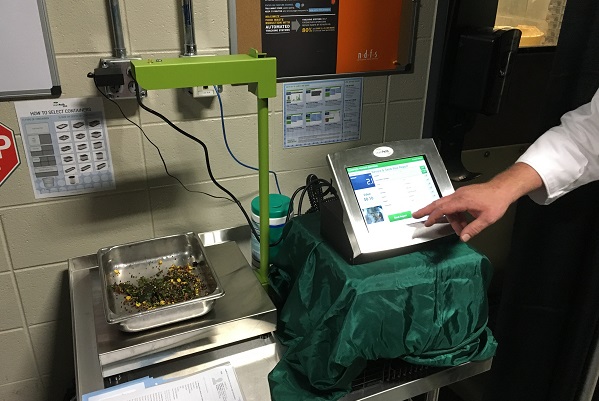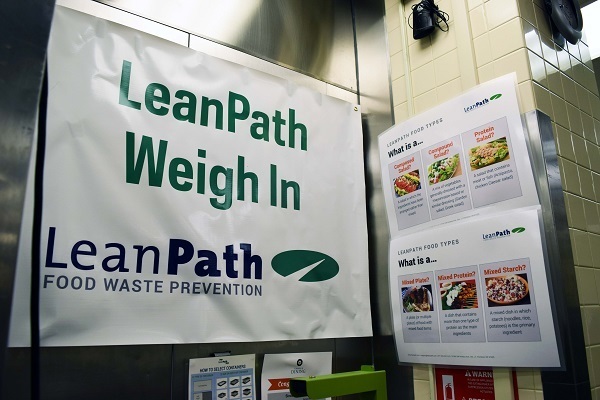
In an effort to reduce food waste and achieve their sustainability goals, Campus Dining has worked with LeanPath, a food waste prevention program, to implement measures across both dining halls and the Center for Culinary Excellence that have reduced pre-consumer food waste by 30%.
Saving over 17.9 tons of food since November 2015, the program provides Campus Dining with tools to track waste and set goals for waste reduction as well as support in analyzing the food production process.

Started to help Campus Dining meet the ever changing balance between social responsibility, customer preferences, and financial concerns, the program provides each facility with a scale, camera and software to weigh and identify the food that is being disposed of or donated.
Pre-consumer food (food that has not been put on a customer’s plate) removed from dining halls is weighed, photographed and imported into the system by cooks and service associates. The system then provides detailed information about the type of food and the reason for disposal such as overproduction or excess purchasing. Finally, the system compares the weighed food against a food waste baseline that was set in the fall of 2015.
Employees are also encouraged to participate in the program through internal incentives. Standings are distributed to employees during regular staff meetings, as well as recorded on the scales themselves. Supervisors also receive regular graphics of the amount of reduced waste to help staff members and others visualize the impact they are having.

The system has provided Campus Dining with many benefits. The staff has become more aware of the amount of food waste produced in different areas and daily procedures to reduce waste have improved. Additionally, there is now more accurate forecasting, an increase in the cross-utilization of ingredients and a reduction in prep amounts.
More than just providing operational, financial and sustainability benefits, it has created a shift in thinking among Campus Dining employees.
“I was happy to see the system come into operation because it has created awareness and made more people aware of sustainability.” Said Paul Costello, Senior Kitchen Coordinator at the Center for Culinary Excellence. “I am hopeful that more people will embrace sustainable practices such as recycling.”
According to the U.S. Department of Agriculture, between 30 and 40 percent of the food supply in America is wasted every year. 40 to 50 percent of that is from consumers and 50 to 60 percent is from businesses. LeanPath helps Campus Dining combat these numbers by preventing the production of food that would go straight to the landfill.
Campus Dining is doing a great job at Notre Dame, but the other half of the food waste battle is in our own homes. Help your family reduce food waste by shopping smart and realistically, not over-serving food, saving and eating leftovers, storing food correctly, avoiding clutter in your fridge, pantry and freezer, and starting a compost pile.
As for Campus Dining’s next steps? “We would like to start measuring post-consumer waste, and make our students aware of their waste habits in regards to dining.” Said Cheryl Bauer, Associate Director of Sourcing and Sustainability. “We’ve come a long way but we look forward to continued opportunities.”